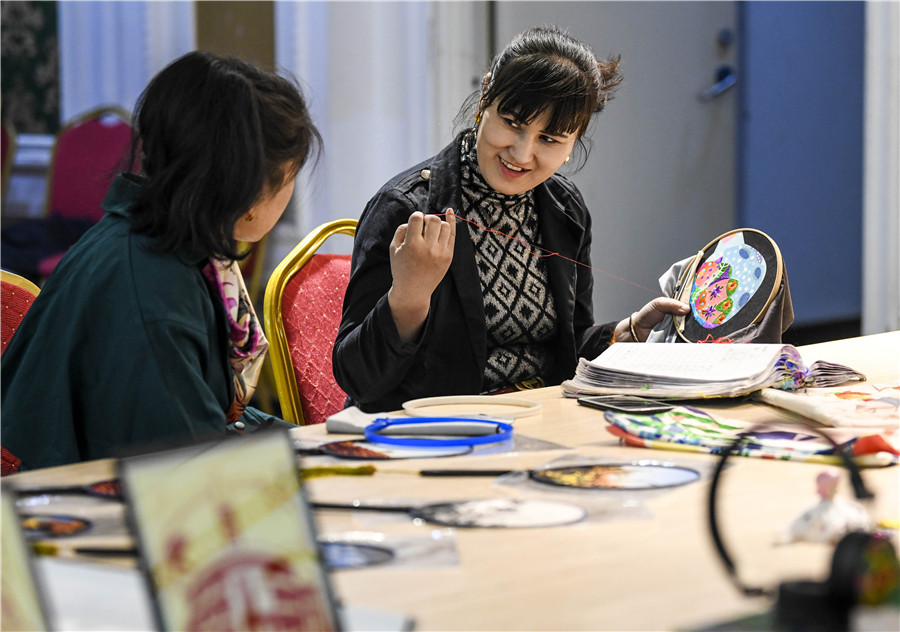Embroiderer elevates Hami craft to haute couture
China Daily | Updated: 2019-04-30 09:16

Though Ranagul Sopi started learning embroidery in a small village in the Xinjiang Uygur autonomous region, her craftsmanship has taken a magical leap onto the catwalks of the Paris Haute Couture Week.
A native of Hami, which is in the eastern part of Xinjiang, she learned traditional embroidery from her mother, who was a skilled and prestigious embroiderer in the city.
Traditional Hami embroidery has a history of more than 400 years. When local women get married, their mothers usually make them a set of embroidered bedding including pillows and cushions as dowry, thus keeping the stitching tradition alive.
Embroidery is still an integral part of people's lives in Hami. It is found on clothing, bedding and other articles of daily use. Popular patterns include animals and brightly-colored flowers.
Ranagul Sopi became a professional embroiderer at the age of 20. Now, the 37-year-old continues to refine her work and seek inspiration from other embroiderers.
"The embroidering skills in other cities such as Suzhou (in Jiangsu province) were an eye-opener," she said. "I realized there is no end to the craft. It is a profound form of art."
She spends several months, or even years, on one piece of embroidery.
In 2016, Ranagul Sopi started to combine embroidery with high fashion, in partnership with a Shanghai clothing brand named Moodbox.
One haute couture gown called "Blooming Flowers" featuring Ranagul Sopi's embroidery was presented at the Paris Haute Couture Week in 2017.
Hami's embroidery industry is also flourishing. About 230 companies have been established, thanks to a series of supportive policies by the local government.
More than 5,600 part-time embroiderers in the city have benefited from the flourishing industry, and it has helped lift them out of poverty.
An official traditional handicraft center of Hami was opened in 2016, and the center has developed more than 1,300 products featuring traditional Hami embroidery including earphones and notebooks.
The center received a total of 1,750 orders for its embroidery products last year, which were worth more than 1 million yuan ($149,500).
As an embroiderer who is well respected, Ranagul Sopi is often invited to fashion shows in Shanghai and other cities. "I feel like I am a superstar surrounded by bodyguards at these shows," she said.
Although she has won many awards including the title "Master of Crafts" in Xinjiang, Ranagul Sopi regards compliments from her mother as her highest honor.
She turned down an opportunity to study fashion design in France to take care of her 75-year-old mother, who is bedridden.
"Embroidery is the special bond between my mother and me," she said. Whenever she completes a piece, her mother is always the first one to see it.
"My mother is a much better embroiderer than me," she said. "It makes me proud when my mother says I did a great job."
Xinhua
























